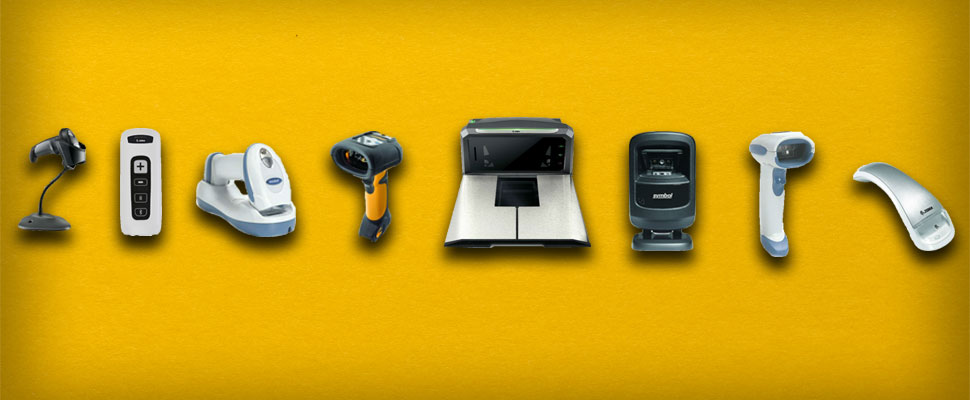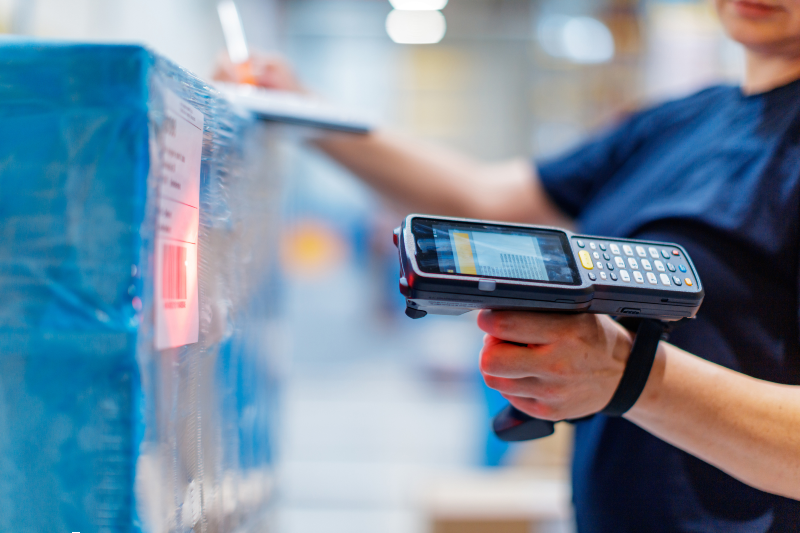Long-Lasting Barcodes Scanners for High-Performance Tasks
Long-Lasting Barcodes Scanners for High-Performance Tasks
Blog Article
Choosing the Right Barcode Scanner for Your Company Requirements
Picking the proper barcode scanner for your organization requires a nuanced understanding of your specific functional demands and environmental problems. Variables such as scanner kind, rate, and compatibility with existing systems play a critical role in figuring out the ideal option. Furthermore, factors to consider around durability, connection, and the overall cost of possession can dramatically affect lasting effectiveness. Comprehending these components is crucial, yet several organizations overlook essential elements that might affect their total productivity. The following action in this procedure might make all the distinction for your operations.
Understanding Barcode Scanner Types
When it involves picking a barcode scanner, understanding the numerous types offered is essential for meeting details service needs. Barcode scanners can be categorized right into numerous kinds, each designed for different applications and settings.
Handheld scanners are one of the most usual, using portability and ease of usage, making them ideal for retail and stock administration. They typically connect using USB or Bluetooth, providing versatility in procedure. Fixed-mount scanners, on the various other hand, are made for high-volume scanning applications, frequently found in assembly lines or checkout counters. These scanners are mounted in a stationary setting, permitting quick scanning of several items one by one.
One more type is the mobile computer system, which combines scanning capacities with computing power. These tools are excellent for area operations or warehouse monitoring, allowing data collection and real-time stock monitoring. Furthermore, there are commercial scanners that are constructed to withstand rough environments, such as severe temperatures or direct exposure to dirt and dampness.

Trick Functions to Think About
What essential features should companies focus on when selecting a barcode scanner? Primarily, scanning speed is crucial, as faster scanners boost operational efficiency, particularly in high-volume settings. The scanner's ability to review different barcode formats is also important; guarantee it sustains prominent types like QR codes, UPC, and Code 128 to fit diverse stock things.
Sturdiness is an additional crucial feature, particularly for services in rugged settings. Look for models that are developed to hold up against decreases, dust, and wetness. Additionally, consider the connection options offered; whether you choose USB, Bluetooth, or Wi-Fi, the best connectivity can boost assimilation with existing systems.

Assessing Your Service Setting
To properly select a barcode scanner, businesses should analyze their specific operational atmosphere. This evaluation consists of reviewing the physical design of the work area, the nature of the items being checked, and the common conditions under which scanning happens. For instance, a retail atmosphere may call for handheld scanners that can rapidly process purchases at the checkout, while a storage facility setup might gain from ruggedized scanners made to sustain harsher problems.
Furthermore, take into consideration the quantity of scanning required. High-throughput atmospheres may require advanced scanning technologies, such as fixed-position scanners or smart phones that can operate efficiently in hectic scenarios. The combination abilities with existing supply administration systems additionally play an essential function; make certain the picked scanner can effortlessly link with software program platforms in use.
Moreover, analyze the potential for growth and scalability. A scanner that satisfies existing needs might not be sufficient as organization expands. By completely assessing these variables, businesses can pick a barcode scanner that not only meets instant requirements however additionally supports long-term operational performance and adaptability. This tactical strategy eventually adds to smoother procedures and improved performance.
Budgeting for Your Scanner
Having analyzed the operational environment and recognized the specific demands for a barcode scanner, the next step includes mindful budgeting to ensure a smart financial investment. Developing a budget plan begins with figuring out the general costs related to the scanner, consisting of first acquisition price, functional costs, and possible maintenance charges.
When choosing a fantastic read a barcode scanner, consider the variety of readily available alternatives, from handheld tools to fixed-position scanners, as rates can vary substantially. It is vital to stabilize expense with functionality; choosing for an extra inexpensive design may cause boosted functional inadequacies if it does not meet your organization needs.
In addition to the hardware, consider costs associated to software application, training, and prospective upgrades. While it may be tempting to decrease upfront expense, spending in a high quality scanner that lines up with your functional requirements can produce long-lasting savings via boosted performance and minimized downtime.
Last but not least, think about the total expense of ownership, which incorporates the scanner's lifespan and prospective resale worth. By thoroughly Click This Link preparing your budget plan, you can guarantee that your investment in a barcode scanner will certainly boost your operational efficiency and monetary performance.
Assimilation With Existing Equipment
Integrating a barcode scanner with your existing systems is essential for optimizing its effectiveness and ensuring seamless procedures. barcodes scanners. A well-integrated scanner enhances workflow performance, decreases errors, and speeds up data processing. When choosing a barcode scanner, consider compatibility with your current software application and equipment infrastructure, including your inventory administration systems, point-of-sale (POS) systems, and venture source planning (ERP) options
Review whether the scanner uses basic protocols such as USB, Bluetooth, or Wi-Fi, which can assist in easy assimilation. Furthermore, analyze whether the scanner's software application supplies APIs or SDKs that enable customization and combination with proprietary systems. This is specifically essential for services with unique functional requirements.
As your organization grows, your systems need to be able to suit extra scanners and take care of increased information volumes without considerable reconfiguration. Eventually, investing in a barcode scanner that seamlessly incorporates with your existing systems will certainly generate lasting advantages, enhancing accuracy, effectiveness, and total performance within your operations.

Conclusion
In verdict, choosing an ideal barcode scanner demands a thorough analysis of various aspects, including scanner types, crucial attributes, and the certain business setting. The appropriate visit here barcode scanner offers as a crucial tool in streamlining processes and promoting efficient stock management.
Report this page